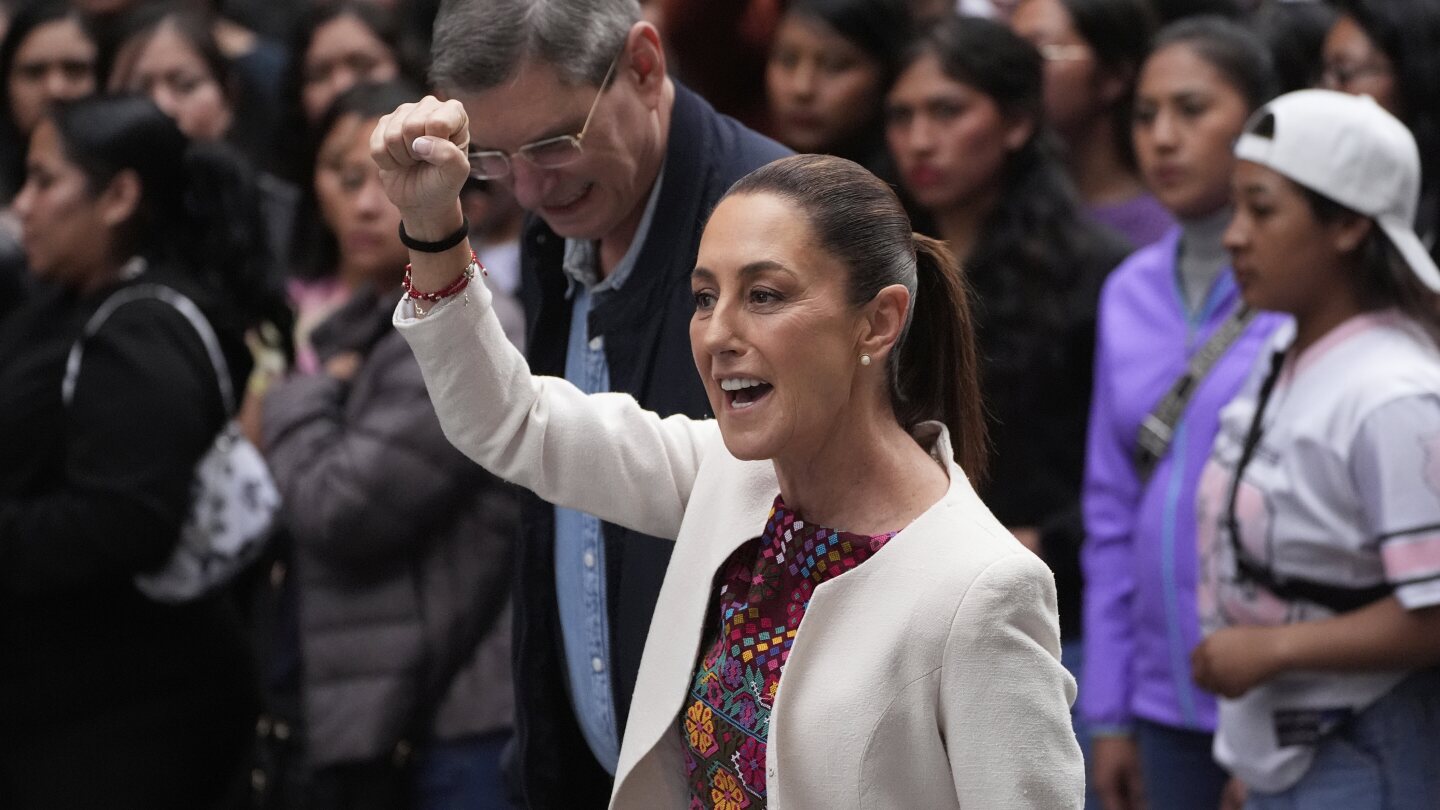MEXICO CITY (AP) — In a move that could reshape Mexico’s judicial landscape, the ruling Morena party is on the verge of gaining control over the country’s Supreme Court, as suggested by the vote counts from the nation’s inaugural judicial elections. This development positions the party to potentially influence all three branches of government, marking a significant shift in the nation’s political structure.
As ballots continue to be tallied for the 2,600 federal, state, and local judicial roles contested in Sunday’s election, near-final results for the nine Supreme Court positions indicate a significant leaning towards Morena. The newly elected justices mostly have strong connections and ideological ties to the ruling party, transforming the previously balanced high court into one dominated by Morena, the party that initiated the judicial overhaul facilitating these elections.
Experts have expressed concerns that this shift may undermine the checks and balances within the country, potentially giving President Claudia Sheinbaum and her party more straightforward avenues to advance their political agenda.
“We’re watching as power is falling almost entirely into the hands of one party,” remarked Georgina De la Fuente, an election specialist with the Mexican consulting firm Strategia Electoral. “There isn’t any balance of power.” Nevertheless, government officials have consistently dismissed concerns over the state of democracy in the country.
A Morena-Dominated Supreme Court and Notable Indigenous Representation
With over 98% of the votes counted, it appears that the majority who will lead Mexico’s highest court are current or former Morena members. Some were appointed by former President Andrés Manuel López Obrador, who is a mentor to Sheinbaum and was instrumental in the judicial reforms. Among these new justices, a noteworthy figure is Hugo Aguilar Ortiz, an Indigenous attorney from Oaxaca, who lacks a clear party affiliation but aligns with Sheinbaum’s vision of including Indigenous representation on the court.
Political Ramifications and Public Concerns
Critics expressed apprehensions about Morena’s potential control of the judiciary. This election follows a period of intense debate, sparked by López Obrador’s push to transition from appointed to elected judges, effectively weakening the Supreme Court’s role as a counterbalance to presidential power.
Some judges, experts, and opposition members argue that the reform was a strategic move to capitalize on Morena’s popularity and stack the judiciary in its favor. Despite these allegations, Sheinbaum and her mentor maintain that electing judges will eradicate corruption in a system widely viewed as dysfunctional.
On Tuesday, Sheinbaum dismissed opposition complaints regarding the Supreme Court’s perceived bias, noting, “they’re the ones who decided not to participate in the election.”
The election was also characterized by low voter turnout—around 13%—and voter confusion over the new system, which opponents quickly criticized as a failure.
De la Fuente suggested that Morena might leverage its newfound influence in the Supreme Court to implement additional reforms, including controversial changes to Mexico’s electoral systems that were previously blocked by the courts.
Guadalupe Taddei Zavala, head of Mexico’s electoral authority, dismissed concerns about a democratic crisis, stating, “I don’t see any (constitutional) crisis after the election.”
Prospective Members of the Supreme Court
- Hugo Aguilar Ortiz: An Indigenous lawyer known for advocating Indigenous rights and critiquing judicial corruption, led the election in votes.
- Lenia Batres: A sitting Supreme Court justice and Morena member, previously a congresswoman, appointed by López Obrador.
- Yasmín Esquivel: Focused on justice system modernization and gender equality; a Supreme Court justice with past plagiarism controversy, aligned with Morena.
- Loretta Ortiz: Supreme Court justice known for independence in judiciary, resigned from Morena in 2018.
- María Estela Ríos González: Legal advisor to López Obrador, experienced public servant in labor and Indigenous issues.
- Giovanni Figueroa Mejía: Academic and human rights worker, no clear party affiliation, supported judicial overhaul.
- Irving Espinosa Betanzo: Advocated for human rights and anti-corruption reforms, previously advised Morena.
- Arístides Rodrigo Guerrero García: Law professor, public servant, gained attention with social media campaign.
- Sara Irene Herrerías Guerra: Human rights prosecutor, worked on immigration facility fire investigation.






